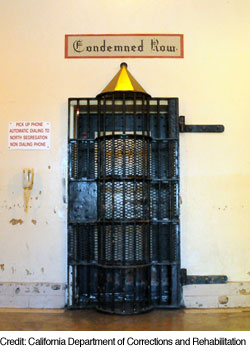 California State Senator Loni Hancock (D-Alameda) recently introduced Senate Bill 490, which seeks to abolish the death penalty in California. This is the first time that the California Legislature has considered the issue of capital punishment since the current statute was enacted in 1978.
California State Senator Loni Hancock (D-Alameda) recently introduced Senate Bill 490, which seeks to abolish the death penalty in California. This is the first time that the California Legislature has considered the issue of capital punishment since the current statute was enacted in 1978.
After Gregg vs. Georgia reinstated capital punishment nationwide, California voters approved the current death penalty law in a referendum. To amend that law, SB 490 must be approved by the voters because state law mandates that referendums can only be repealed at the ballot box.
If California voters approve SB 490, first-degree murder with one or more special circumstances will be punished by life without the possibility of parole. The death penalty option would no longer be available. Additionally, the state would halt future executions and commute all existing death sentences to life without parole.
The impetus for this effort comes from a Loyola of Los Angeles Law Review article authored by U.S. Court of Appeals for the Ninth Circuit Senior Judge Arthur L. Alarcon and Loyola Law School Los Angeles Adjunct Professor of Law Paula M. Mitchell. Their study contended that the abolition of capital punishment in California could save the state $1 billion dollars every five or six years. The study also found that “the state’s 714 death row prisoners cost $184 million more per year than those sentenced to life in prison without the possibility of parole.”
Don Heller, the author of the original enacting initiative, supports Senator Hancock’s bill. Heller has since come to “fervently believe” that capital punishment should be abolished. He says that when the law was drafted in 1978, his office grossly underestimated the costs to the state. He argues that each execution since the death penalty was reinstated under that law has cost the state $330 million, and it’s simply not worth it. It should be noted that the American Law Institute, which promulgates the Model Penal Code (upon which many states base their own statutes), has also reversed its position, taking capital punishment out of the model code.
 A juror who tweeted during a murder trial, and while he and his fellow jurors deliberated, led the Arkansas Supreme Court to reverse the conviction of a 26-year-old death row inmate.
A juror who tweeted during a murder trial, and while he and his fellow jurors deliberated, led the Arkansas Supreme Court to reverse the conviction of a 26-year-old death row inmate.
 California State Senator
California State Senator 


